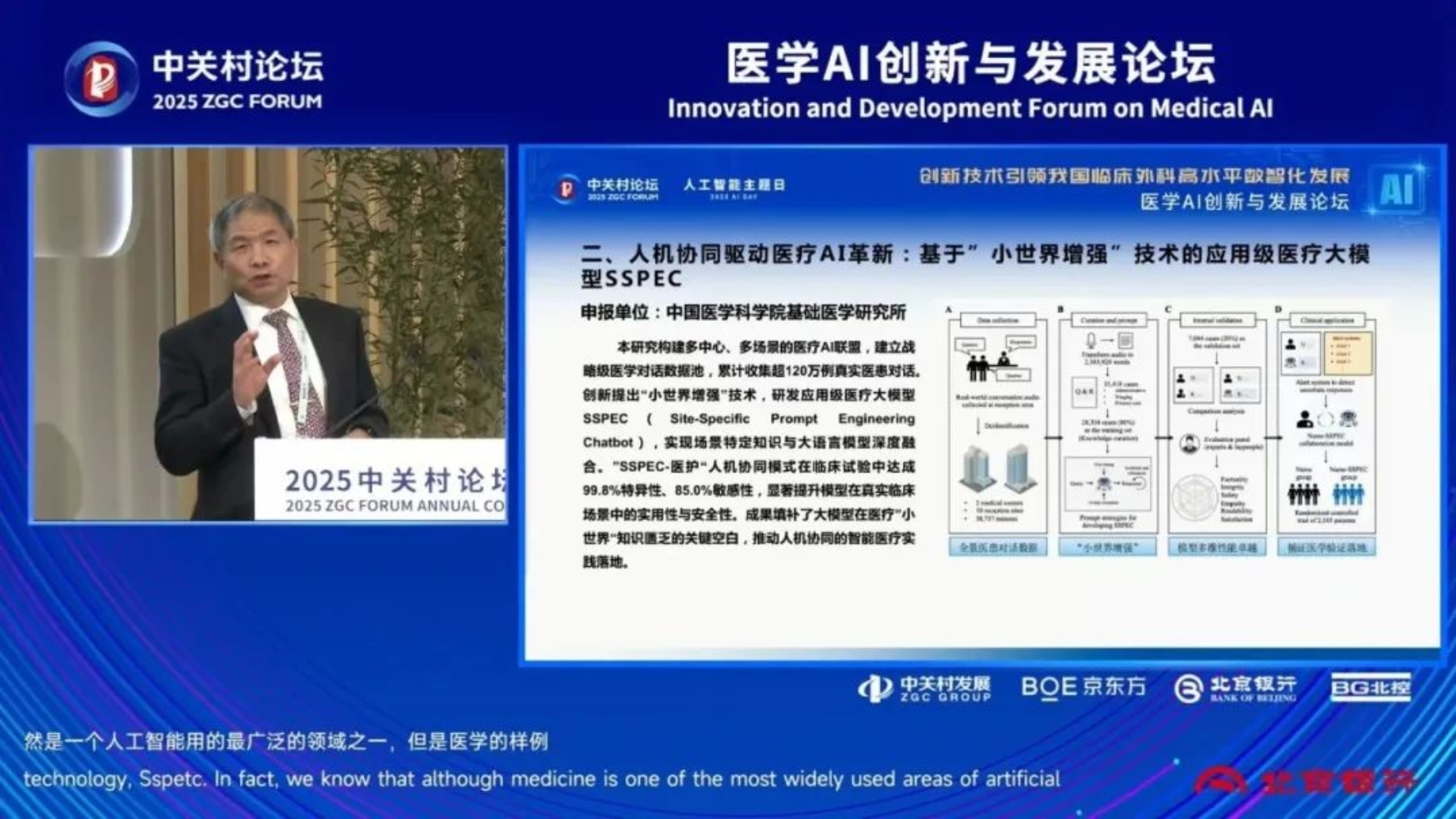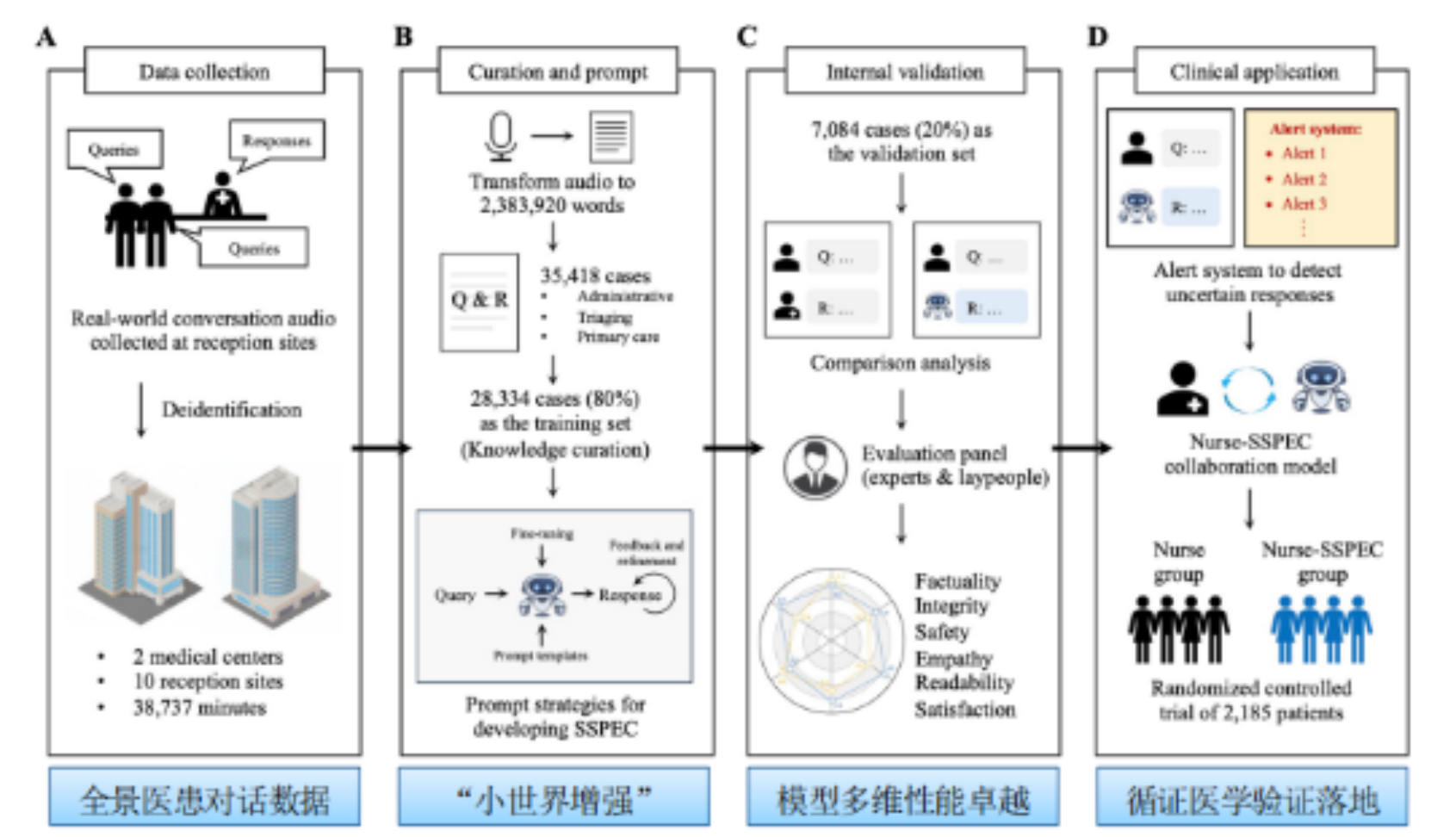

On March 29, 2025, 2025 ZGC Forum: Innovation and Development Forum on Medical AI was held. At the forum, “SSPEC: An Application-Level Medical Large Model Based on Small-World Enhancement Technology” of the IBMS of CAMS, was successfully selected as one of the top ten advances in medical artificial intelligence in China in 2024.
In recent years, with the gradual improvement of national top-level design and the continuous investment increase in science and technology, more significant breakthroughs has been made continuously in China's medical artificial intelligence field, and a series of technological innovation achievements have emerged. The generative artificial intelligence technology, represented by large models, is becoming a key technological support for promoting the optimization of medical resource allocation. However, challenges such as the lack of scene-specific knowledge and insufficient content security in large model technology have not been resolved. This achievement builds a multi-center, multi-scenario medical AI alliance, establishes a strategic level medical dialogue data pool, and collects over 1.2 million real doctor-patient dialogues. It proposed the “Small-world Enhancement” technology innovatively and developed the application-level medical big model SSPEC (Site-Specific Prompt Engineering Chatbot) to achieve the deep integration of scene-specific knowledge and large language models.

The “SSPEC-Nurses” human-machine collaboration mode has achieved a warning performance with 99.8% specificity and 85.0% sensitivity in clinical trials, effectively combating hallucinations and significantly improving the practicality and safety of large models in real clinical scenarios. This achievement has filled the key gap in the lack of knowledge of big models in the medical “small world” and promoted the implementation of intelligent medical practices through human-machine collaboration.

This research result attracted widespread attention after being published in Nature Medicine in July 2024, with positive reviews from international peers such as Winnie Yip, President of the Harvard Global Health Policy Society, and was selected for a special research report of Nature Medicine.